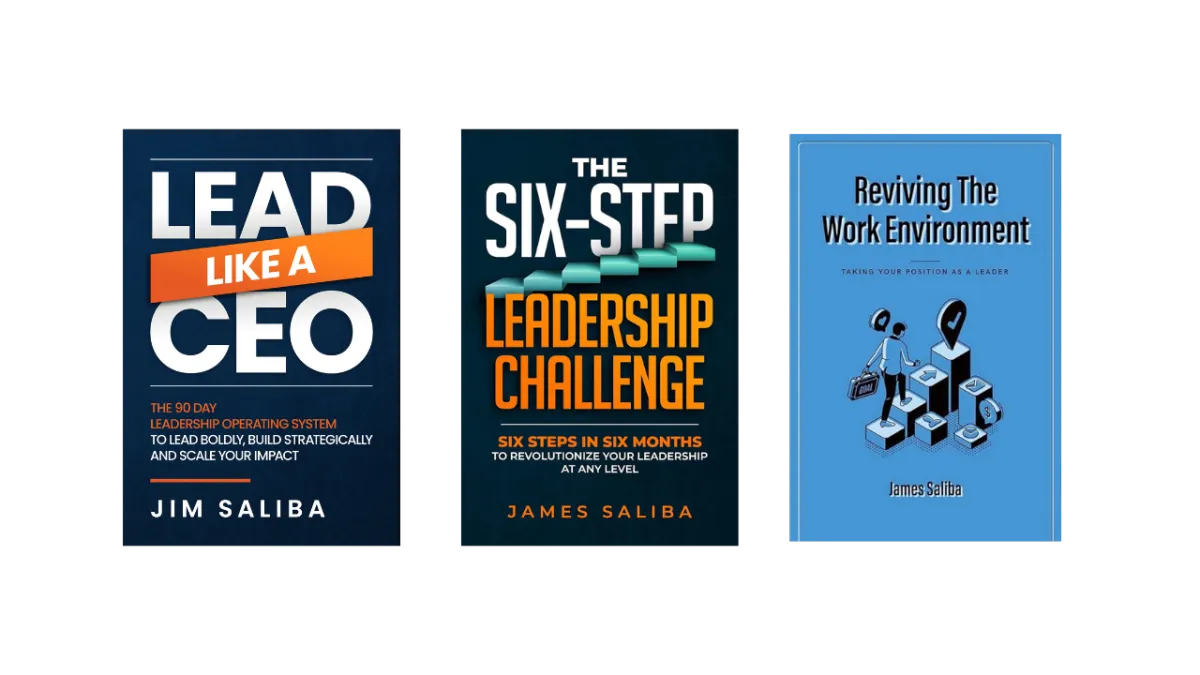Insights for Real-World Leadership
Straight talk and proven strategies for leaders who are done babysitting and ready to lead at the next level.

Breaking Free from Negative Bias: How to Overcome Self-Sabotage in the Workplace
Have you ever made a decision at work that didn't turn out as expected? Do you ever wonder why you made that decision in the first place? Often, the answer lies in your brain's flight or fight response.
As an adult, you perceive life through three lenses - values, desires, and experiences. Your brain collects experiences and builds beliefs that are simple, teachable, undeniable, unfalsifiable, and often have negative biases.
Negative bias refers to your tendency to remember traumatic experiences more than positive ones, recall insults more than praise, think about negative things more frequently than positive ones, and respond more strongly and quickly to negative stimuli than to equally positive ones.
This negative bias can lead to self-sabotaging stories in the workplace. For example, if you believe that you're not good enough, you may not take on new projects or responsibilities, even if you're qualified for them. This can hold you back from reaching your full potential and advancing in your career.
So, how can you combat negative bias and self-sabotaging stories in the workplace? Here are some tips:
Recognize your negative biases:
Be aware of your negative biases and how they may impact your decision-making abilities.Challenge your negative beliefs:
When negative thoughts arise, challenge them by asking yourself if they're true and what evidence you have to support them. Look for alternative beliefs that are more positive and empowering.Focus on positive experiences:
Make a conscious effort to focus on positive experiences, such as compliments or successful projects, to counteract the effects of negative bias.Seek feedback:
Seek feedback from others to gain a more objective perspective on your abilities and performance.
Recognizing and challenging negative biases can create a more positive work environment and improve your decision-making abilities. Remember, the flight or fight response is a natural response in your brain, but it doesn't have to control your actions and decisions.
UPDATE:
Self-sabotaging stories are beliefs that we hold about ourselves or our abilities that limit our potential and can lead to self-sabotaging behaviors. Here are 10 examples, some your might recognize:
"I'm not good enough": This story can lead to feelings of inadequacy and can prevent us from pursuing our goals or trying new things.
"I'm not smart enough": This story can hold us back from taking on challenging tasks or pursuing opportunities that require intellectual abilities.
"I always mess things up": This story can lead to a self-fulfilling prophecy where we believe we will fail, and then our actions lead to failure.
"I'm not worthy of success": This story can prevent us from achieving our goals because we believe we don't deserve them.
"I'm too old/young": This story can limit our opportunities and prevent us from taking risks or pursuing new paths.
"I'm too busy": This story can prevent us from prioritizing our goals or making time for things that are important to us.
"I don't have enough experience": This story can hold us back from taking on new challenges or pursuing opportunities because we believe we don't have the necessary experience.
"I'm too shy/introverted": This story can limit our ability to connect with others or pursue social situations that may be beneficial to us.
"I don't have enough resources": This story can prevent us from pursuing our goals or taking risks because we believe we don't have the necessary resources (money, time, connections, etc.).
"I'm not lucky": This story can lead us to believe that our success or failure is out of our control, which can prevent us from taking responsibility for our actions and making changes.
In conclusion, understanding flight or fight response and how negative bias and self-sabotaging stories impact your workplace can help you become a better leader and improve your overall performance. By being aware of your biases and beliefs, you can make more informed decisions and create a more positive work culture.
Leaders Who’ve Made the Shift
Michael R., Senior VP

“Jim did more in two sessions than my last coach did in six months.”
(Translation: Jim doesn’t waste your time.)
Karen H., Senior VP

“Jim made it easy to focus on the real leadership challenges.”
(Translation: No fluffy theories. Just real talk and results.)
Ashly N., Director

“Within 15 minutes, I knew I’d made the right decision.”
(Translation: You’ll know fast if Jim’s your coach.)
Stop Acting Like the Chief Fire Extinguisher.
Start Leading.
You know the endless approvals, babysitting, and check-ins aren't real leadership. Let's fix that.
© 2025 James Saliba Inc. • All Rights Reserved • Helping Tech Leaders Lead Strategically Without Firefighting • Terms & Conditions


